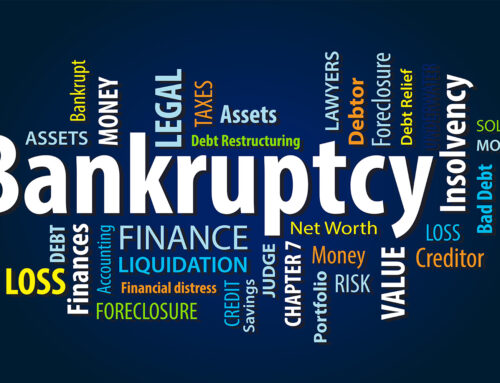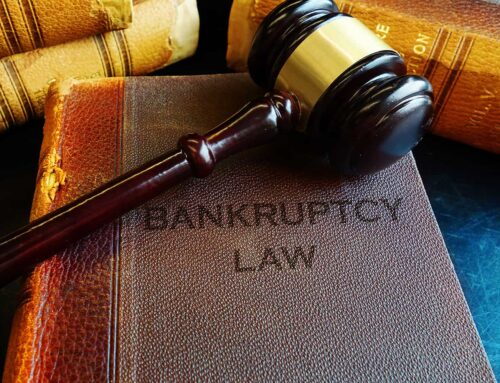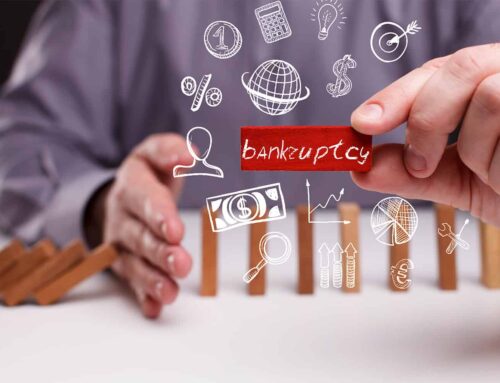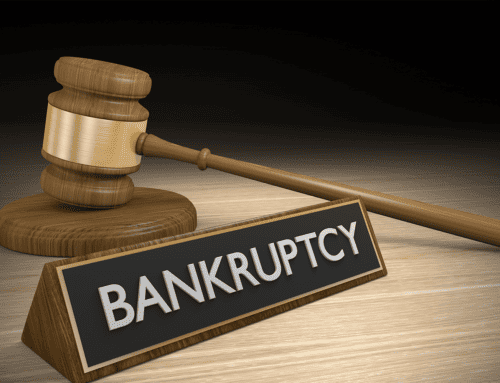After struggling for months to meet payments and dodging collection calls from creditors, you may finally decide that filing for bankruptcy is the best answer for you and your loved ones. You hope to get some peace of mind and move forward with your financial life. Before you breathe a sigh of relief, however, make sure you understand which of your debts may be fully or partially discharged by the bankruptcy court.
Understand the Rules To Make the Best Decision
When debts are discharged through either Chapter 7 or Chapter 13 bankruptcy, your creditors can no longer attempt to collect these financial obligations or lay hands on collateral you used to secure them. The primary reason you should know exactly which debts are discharged by a bankruptcy filing is to make sure you are on the right financial path and not headed for disappointment or disaster. If one of the main causes of your financial distress is not going to disappear with the bankruptcy proceedings, you may need to rethink your debt relief strategy.
Remember the Purpose of Bankruptcy Laws
When grappling with the nuances of federal and California bankruptcy regulations, it is helpful to remember why they were enacted. As explained on the United States Courts website, the main reason Congress enacted bankruptcy laws was to give individuals crushed by debt a fresh start.
At the same time, bankruptcy codes attempt to balance fair treatment of creditors and other persons and entities negatively affected by the filing. While it is important to give individuals burdened with a load of debt the opportunity to get back on a positive financial track, some obligations such as child support for minors are too vital to discharge in the bankruptcy proceedings.
Review California Non-Dischargeable Debts
Some of your debts will not go away with your bankruptcy proceedings under any circumstances. A few types of indebtedness may possibly be discharged only if you can prove special hardships. Other obligations are generally eliminated through bankruptcy unless a creditor challenges the discharge.
If you file for Chapter 7 bankruptcy, the nondischargeable debts remain after other obligations are discharged, and you must still pay them in full. In a Chapter 13 filing, the entire amount of a nondischargeable debt remains in your court-approved repayment plan; no reduction of the debt is allowed.
Debts That Follow You After Bankruptcy
The following financial obligations are nondischargeable under California bankruptcy law and must still be paid:
- All court-ordered child support and alimony after a divorce proceeding, including all amounts in arrears
- The last three years of income taxes owed, along with other tax debts
- Amounts a court ordered you to pay for injuries or death you caused while driving under the influence of alcohol or other substances
- Fines incurred for breaking the law, including traffic fines or reparations for criminal violations
- Debts resulting from your deliberate injury to another person, and in some cases, property
- Any debts you knowingly or unknowingly failed to list in your bankruptcy petition
Debts That Are Seldom Discharged
It is extremely difficult to get any full or partial student loan debt discharged through bankruptcy. The debtor must document that repaying the student loans would present an undue hardship for the filer and dependents.
Likewise, a debtor may petition for a special exemption in the case of some tax debts going back a number of years. Consult an attorney to determine if bankruptcy can possibly help with tax debts or if another course of action is better.
Keep in Mind the 90-day Window
When you file for bankruptcy, the court appoints a bankruptcy trustee to review all the details and oversee the proceedings. This trustee looks over your financial activities for the 90 days preceding the filing date to make sure additional debts taken on during this period are reasonable and not for luxurious or unnecessary items. Be aware that creditors can challenge even dischargeable debts, and this may cause delays with proceedings.
Seek Professional Help
If you are in a financial quandary, call the offices of Brent D. George today at (805) 494-8400. We will take the time to thoroughly review your situation and guide you to the best solution.







